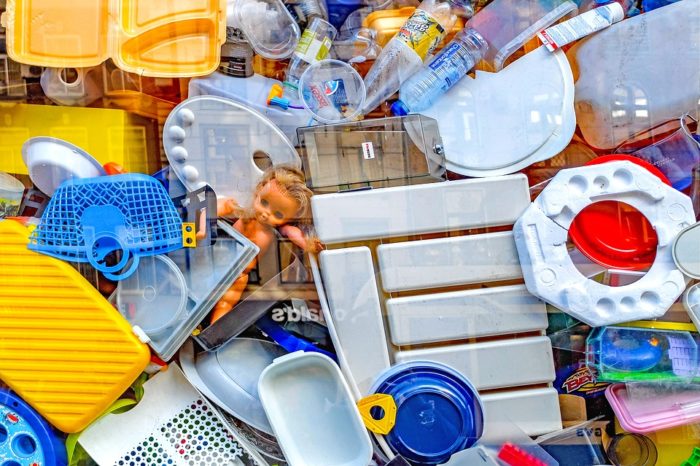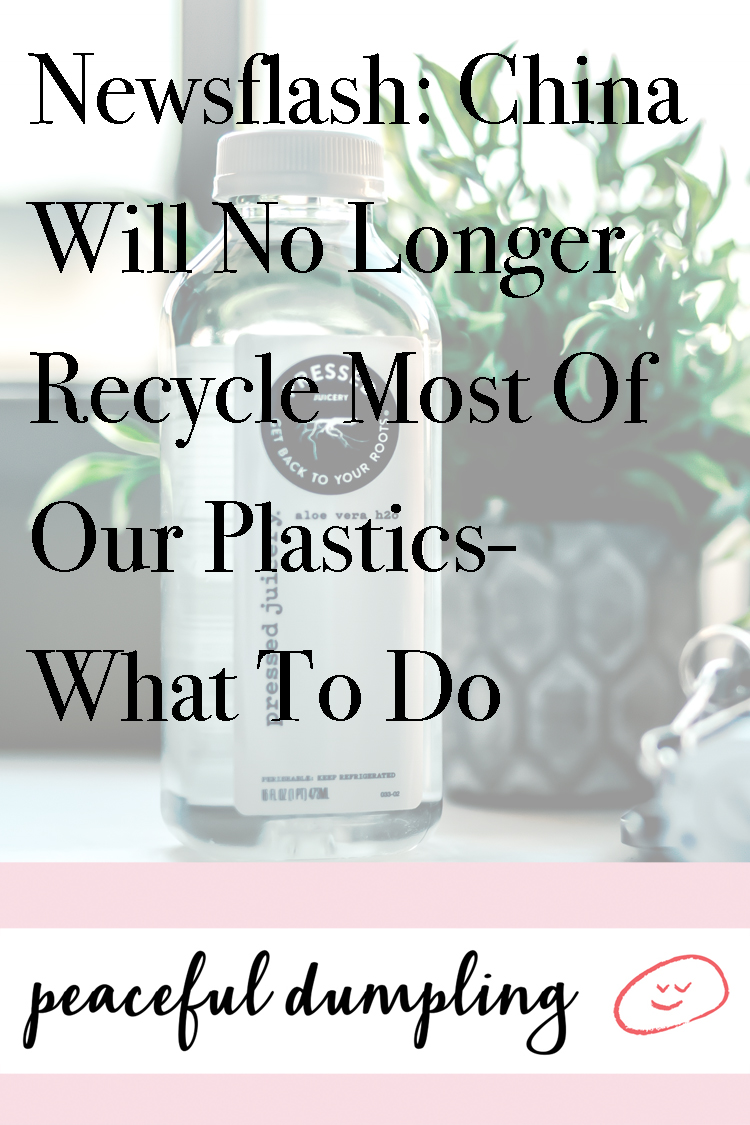
For decades we’ve had the importance of recycling drilled into our heads. But, like so many things, what was once new and different has become old hat. We’re so used to recycling that it’s become just another everyday activity. In fact, many of us live in municipalities that have curbside recycling programs, which means recycling is a “toss and forget” exercise.
Perhaps this is why so many of us were completely unaware that the bulk of our plastics weren’t being recycled in America. The vast majority of our waste has been shipped to China for years.
China is the world’s biggest importer of recycled materials. They don’t just take in our garbage, they take in materials from a number of major countries, including Canada, the U.K., and Japan. In one year alone (2016), they imported more than 7.3 million metric tons of waste from developed countries. That. Is. Insane.
However, as of January 1, 2018, China will no longer be accepting much of the plastic and paper we’ve been sending over for decades.
Why Is China No Longer Recycling?
The lion’s share of recyclables being exported to China have had a high rate of contamination. Some of this was minor impurities (which makes recycling difficult), while other contamination was actually hazardous waste. During the recycling process, toxins from these materials were being released into the environment and contaminated waste was being emptied into rivers. Naturally, dangerous air-quality, polluted drinking water, and a full-blown public health crisis followed.
After much deliberation, in July of 2017, China’s Ministry of Environmental Protection announced to the World Trade Organization (WTO) that they would no longer be taking imports of mixed paper, post-consumer plastics (including those labeled 3-7), and vanadium slag.
Moreover, in March 2018, they would be set a contamination limit of 0.5 percent on all other waste imports — a limit so restrictive that it effectively furthered the original ban.
For years, China had been suffering environmental issues caused by our garbage and they were done. They decided it was high time we deal with our own waste.
How to Waste Less
The recycling ban is the push we needed to put in place a far more progressive disposal and recycling system around the world. This is the moment to squash the notion that everything can and should be recycled. Recycling isn’t actually good for the environment — it’s just less of a burden than landfills. Instead, we should be focused on waste prevention, reuse, and a circular economy.

Since so many towns and cities around the country have stopped curbside pickup of the banned materials, the onus is on consumers to reduce household waste. The best way to do that is to avoid single-use plastics. Here’s how:
- Purchase food and beverages in bulk and store them in reusable glass, stainless steel or ceramic containers.
- For foods that cannot be bought in bulk, look for those packaged in paper, cardboard, or glass.
- By making your own bread and buying produce fresh instead of frozen, you can avoid plastic bags.
- Put leftovers in ceramic or glass containers.
- Instead of Ziploc bags, wrap foods in paper or aluminum foil.
- Carry a glass or stainless steel reusable water bottle wherever you go.
- When dining out, bring your own reusable containers to package leftovers.
- Reusable cloth or canvas grocery and produce bags are the best. They are stronger and hold more than those flimsy (and unrecyclable) plastic bags.
- No more plastic straws! Purchase a reusable metal one and carry it with you on the go!
- Picnics and parties are more sustainable when you use reusable dishes and cutlery.
- Use cloth diapers.
- Experiment with reusable feminine hygiene products, such as menstrual cups, reusable pads or special “period-proof” underwear.
- Find creative uses for food waste — from the garden to animal feed, you’d be surprised where it can go.
- Start composting as much of your waste as possible. It’s not only great fertilizer for your garden, it reduces the need for plastic trash bags.
We need to take a long, hard look at the waste problem in this country. Single-use plastics are a bane to the environment, and it’s time we got rid of them for good. It’s up to us to stop using plastic and start using glass, metal, and paper again — it’s the only way to send a real message to manufacturers that we’re ready to make a change.

Have you tried any successful strategies for reducing your plastic waste?
Also by Liz: Think Eco-Friendly Lifestyle Is Out Of Reach? 12 Easy Ways To Be #TeamEarth
Related: I Did Zero Waste For A Month & Believe *This* Is The Solution To Our Trash Problem
Microplastics Make Up 82% Of Plastic In Oceans. How You Can Make An Impact
Get more like this—Subscribe to our daily inspirational newsletter for exclusive content!
__
Photo: Pixabay, Devin Avery on Unsplash




